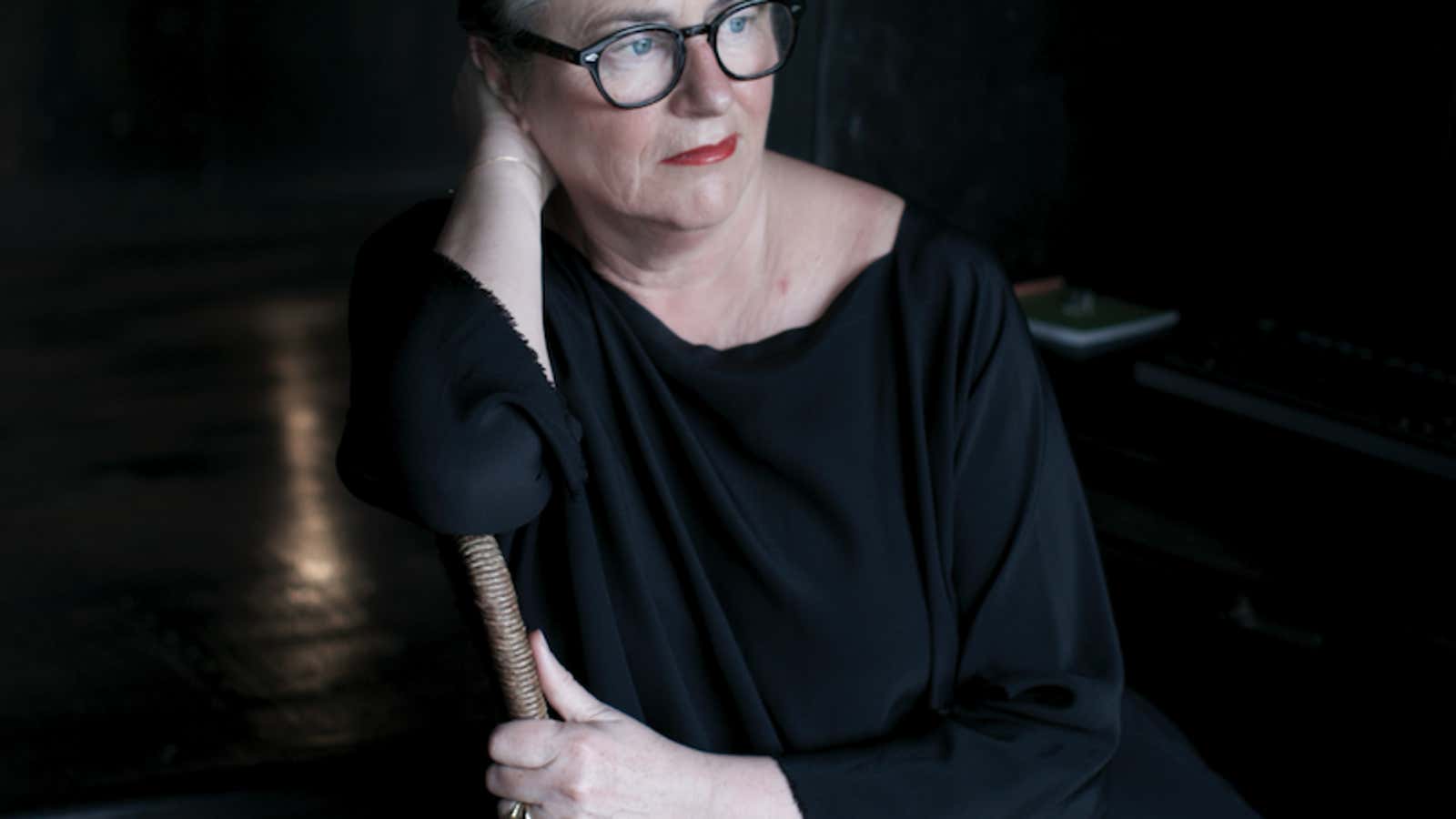“I think we should be very grateful for the virus because it might be the reason we survive as a species.”
Dutch trends forecaster Li Edelkoort has a provocative outlook on Covid-19, the deadly coronavirus strain that has upended manufacturing cycles, travel plans, and conference schedules around the world. Speaking at Design Indaba, a conference in Cape Town last week, the celebrated 69-year old design industry advisor pictured Covid-19 as a sobering force that will temper our consumerist appetites and jet-setting habits.
Edelkoort, who in recent years has become a fashion sustainability crusader, believes we can emerge from the health crisis as more conscientious humans. “We need to find new values—values of simple experience, of friendship,” she told Quartz. “It might just turn the world around for the better.”
“The virus will slow down everything,” Edelkoort notes. “We will see an arrest in the making of consumer goods. That is terrible and wonderful because we need to stop producing at such a pace. We need to change our behavior to save the environment. It’s almost as if the virus is an amazing grace for the planet.”
Having been a consultant to global brands like Armani, Hyundai, and Google, in a career spanning more than 45 years, Edelkoort is attuned to how travel restrictions affect businesses. Then, of course, there is the crucial role China plays in the supply chain for companies around the world. “People will try to do things via Skype, but that seldom works,” she explains. “We are already two months behind, which means summer-themed goods won’t be delivered or will arrive too late to be sold.”
But after the coronavirus, utopia looms, Edelkoort suggests. Indeed, Covid-19 could open new avenues for innovation, akin to how the bubonic plague ushered in an era of labor reforms and improvements in medicine in the Middle Ages. Being confined to our own towns or cities could foster a revival of cottage industries and an appreciation for locally made goods, she says. “There are so many possibilities,” Edelkoort says. “I’m strangely looking forward to it.”
